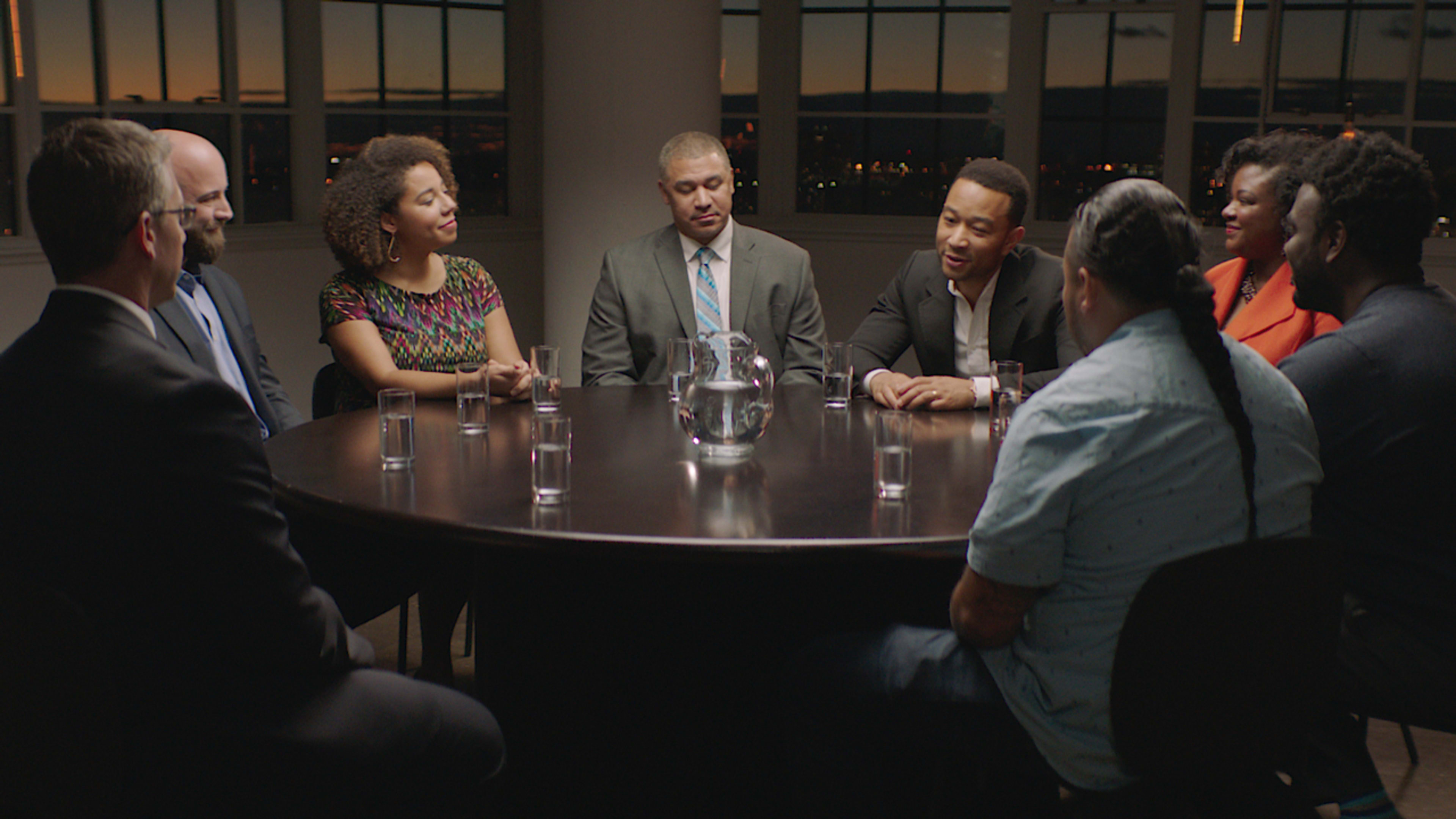“I’m tearing up!” shouts entrepreneur Teresa Hodge. “I feel like a proud mom.” Hodge is beaming after a presentation by Marcus Bullock, the founder of Flikshop, an app through which family and friends can send photo postcards to inmates.
It’s a Wednesday morning, and I’m at an event in Lower Manhattan celebrating the inaugural class of Unlocked Futures, a 16-month-long accelerator for social entrepreneurs who have been incarcerated or impacted by the criminal justice system. The room is just big enough to hold the eight entrepreneurs selected for the first group, a videographer with a formidable body-mounted camera rig, and a smattering of employees from nonprofit philanthropic fund New Profit, who come and go as they please.
For much of the morning session, New Profit’s affable, deliberate managing partner Tulaine Montgomery holds court. But about an hour in, each of the entrepreneurs steps up to share their story through what is called a PechaKucha presentation, in which speakers are tasked with compiling a 20-slide photo presentation and can only spend 20 seconds explaining each slide.
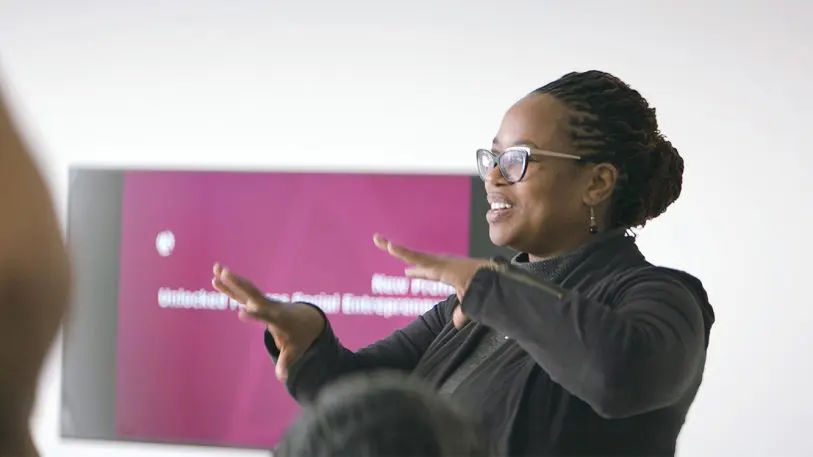
Amanda Alexander, one of two entrepreneurs in the group who did not go to prison, wants to transform Detroit into a “Just City” through the Detroit Justice Center, which seeks to make Detroit more equitable by improving transitional housing, reducing fines and ticketing, and more. One of her peers in the cohort is Topeka K. Sam, who just launched the Bronx-based Hope House, which will house women for up to a year after incarceration to help them get back on their feet. During a roundtable the next day, the entrepreneurs had a wide-ranging conversation with John Legend, collector of Grammys and founder of criminal justice reform initiative FreeAmerica. Alexander talked about her own hopes for Sam’s venture. “I can’t wait for Hope House to get off the ground in the Bronx so it can go to Detroit,” she mused.
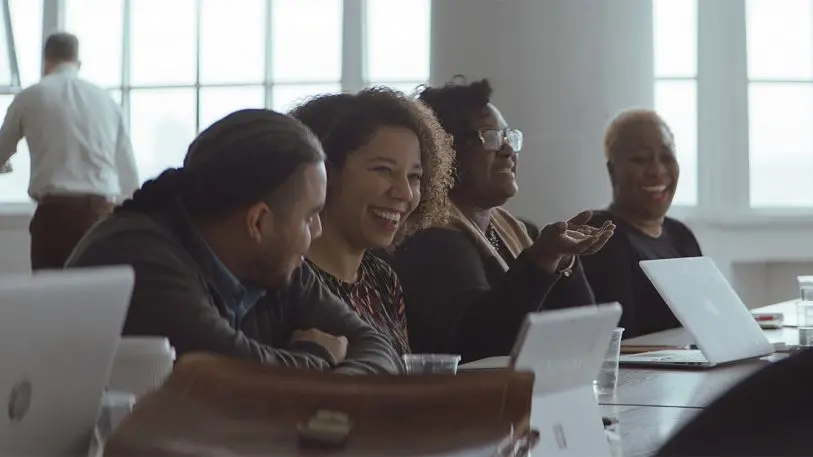
“For entrepreneurs who are often overextended and under-resourced, who are often isolated, who rarely have a place where they can talk openly about what they’re up against–the power of creating a community that is a counterweight to that isolation can’t be overstated,” says Montgomery, who is at the helm of Unlocked Futures.
Related Video: These Entrepreneurs Were Inmates—Now John Legend Is Backing Their Companies
One of the reasons they sought out people who weren’t new to entrepreneurship—founders who had a “readiness to grow,” according to Montgomery—was because a key component of the Unlocked Futures program is not only supporting entrepreneurs from a business perspective, but also schooling them in how to effect change and further the broader conversation on criminal justice.
“We were able to curate a cohort of eight leaders that have already jelled and built a support network, even in the first time we brought them together,” Montgomery says. Her team can take credit for some of that. In the sessions I sat in on, the entrepreneurs didn’t just share their business aspirations and talk shop. They were encouraged to discuss their time in prison, ask each other questions, and share the lessons they had learned from friends and family–all of which is inextricably linked to their work. Relationship building, Montgomery says, is one of the things she believes sets Unlocked Futures apart from other accelerators.
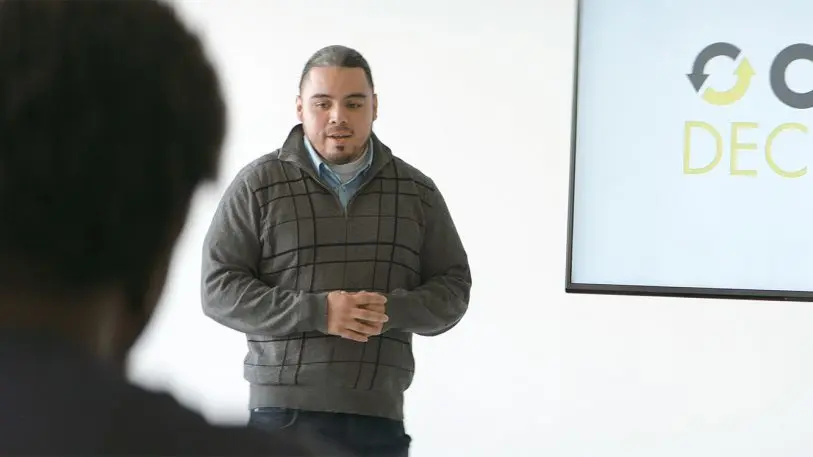
“That’s how blatant the discrimination is,” Hodge said at the roundtable. “Entrepreneurship is important because we may not get jobs . . . We’re hiring ourselves. It’s out of necessity.”
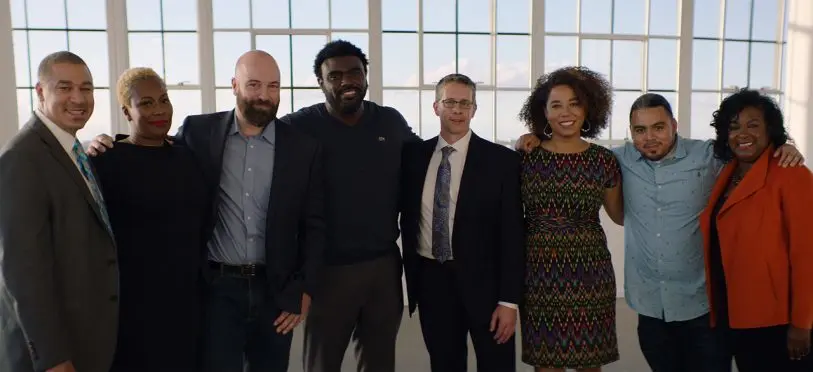
“We wanted people who had an agenda and a mission that was directed toward that community of formerly incarcerated people and people who are vulnerable who we want to prevent from getting caught up in the system again, or in the first place,” Legend says. “So all of the entrepreneurs we’re supporting meet that criteria. Even if they have for-profit businesses like Flikshop–it’s targeted at people who are in prison and their families, to make sure they’re communicating with each other.”
For entrepreneurs who have been incarcerated, moral imperative may drive them to serve those communities. As Sam said during the roundtable, “it’s very difficult to leave prison and not think about the people you left behind.” But for those who value cold, hard numbers–say, the powers that be in local and state government—there is also an economic incentive to help people unmoored by incarceration.
More than 2.3 million people are currently incarcerated, and the criminal justice system reportedly costs the government and the families of incarcerated people upwards of $182 billion per year. What might happen if, after leaving prison, more of those people could reap the benefits of a program like Unlocked Futures? “Ninety-five percent of people in [state] prison come home,” Hodge said. “It’s fiscally irresponsible to lock them out of opportunities.”
Recognize your company's culture of innovation by applying to this year's Best Workplaces for Innovators Awards before the extended deadline, April 12.
